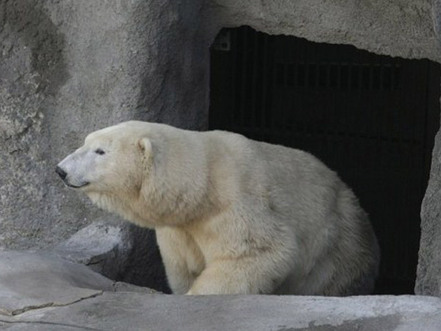Polar Bear in German Zoo Died From Zebra Virus

A polar bear in a German zoo died and its companion barely survived after they fell sick with a mutated encephalitis virus that originated in zebras, scientists say.
The finding is a concern, for it shows how rare species in zoos can be at risk from species-jumping pathogens, they say.
The incident happened in Wuppertal Zoo, western Germany, in 2010, when a female bear called Jerka and her male companion Lars fell ill with encephalitis.
"The symptoms were quite shocking, and it was completely unclear at the time what was causing them," Wuppertal vet Arne Lawrenz said in a press release issued on Thursday.
"We tried to stabilize both animals for days. In the case of Jerka, we were sadly unsuccessful. Fortunately, however, Lars recovered after several weeks and is still alive today."
The next step was to hunt for the cause of the virus, and the result -- published in the journal Current Biology -- points to a hybrid virus that began in zebras but spread to other species.
It is a mix of the equine herpes virus EHV 9 and a cousin virus, equine herpes virus 1.
Still unresolved, though, is how the virus got to the polar bears, which are housed 68 meters (75 yards) from the zebras and are cared for by different keepers.
One theory is that other animals, possibly wild mice or rats, spread it around.
"These viruses do not seem to respect species boundaries and in fact we don't really know whether they have any," said Klaus Osterrieder, a professor at Berlin's Free University, who took part in the probe headed by the Leibniz Institute for Zoo and Wildlife Research.
"One conundrum is that these viruses are not particularly stable in the environment, so it is important to figure out how they move between species."



